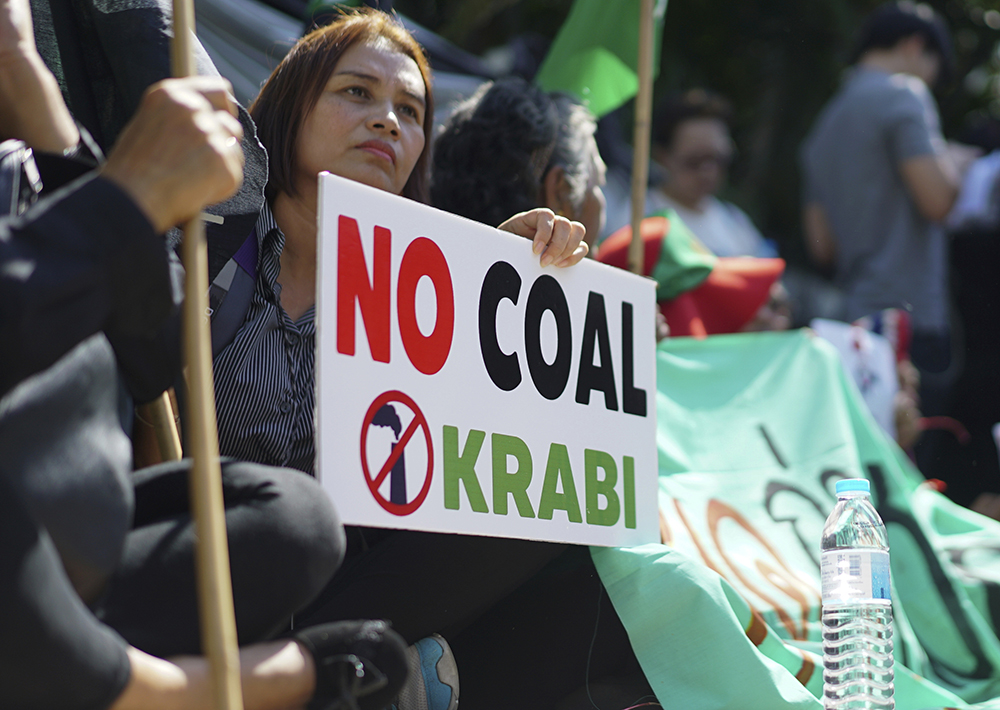Bangkok (AP) – A government committee has approved construction of an 800-megawatt coal power plant near pristine beaches on the Andaman Sea, Thailand’s prime minister said last Friday.
The plant and an accompanying dock are slated to be built next to an existing oil plant on the coast in Krabi, a province whose sandy shores, aqua-blue waters, and soaring limestone cliffs that plunge dramatically into the Andaman Sea make it a world-famous tourist destination.
The announcement by Prime Minister Prayuth Chan-ocha that the National Energy Policy Committee has given the go-ahead to the project was criticized by activists who worry the plant will pollute local waters and spoil scenery. They say it will damage tourism and fishing, and that eco-friendly alternatives should be considered instead.
The Energy Ministry says southern Thailand’s power grid falls hundreds of megawatts short during peak demand, requiring electrical backup from Malaysia or provinces further north. But environmentalists argued in a report submitted to the ministry last year that biomass, wind, or other renewable energy sources could make up the shortfall.
The proposal will be reviewed to meet environmental standards before being forwarded to the Cabinet. Prayuth, who heads a military government, chaired the committee and in announcing its approval said the project was necessary to avoid future shortages and was safe.
Several hundred demonstrators traveled overnight from Krabi to stage a sit-in at the gates outside the prime minister’s office compound, waving green flags emblazoned with “NO COAL” under skulls and crossbones. Some scuffled with police guards after the decision was announced.

“It’s not right,” Akradej Chakjinda, leader of activist group Save Krabi, said of the decision. “He’s not listening to the local people. He’s listening just to members of the energy ministry, to his friends.”
Activists say the plant and its pollution will wreck Krabi’s tourist trade and hurt fishermen, damaging two of the largest industries in the province. Tourism made up 17.7 percent of Thailand’s economy in 2016, according to official statistics.
“Krabi is very famous for its nature, people come for nature, but now you destroy nature,” said Ponwarin Kanantai, 20, a college student whose parents run a hotel in a beachside town in Krabi. “It’s not our generation – you have think of the next generation, how will they be impacted by coal.”
Officials say the plant will adhere to high cleanliness standards and will burn premium-grade coal imported from Australia to cut down on emissions. They point out it will be built next to an already-existing power station hidden behind trees – not, they say, on pristine grounds.




